Social media has become an undeniable force in our lives, seamlessly woven into the fabric of our daily routines. These platforms offer constant information and interaction, from staying connected with friends and family to discovering new trends.
In this article, we will explore the impact of social media and mental health, exploring how our online habits can influence our emotional state.
Additionally, we will explore strategies for creating a healthier digital environment, allowing you to reap the benefits of social media while minimizing potential harm.
The rise of social media platforms has drastically transformed how people interact and communicate. From Facebook and Instagram to Twitter and TikTok, these platforms have become integral to daily life.
Social media isn’t all bad news. These platforms can offer a surprising number of advantages that contribute to improved mental health.
Social media helps us stay in touch with friends and family, especially those who live far away. It can feel lonely without seeing people face-to-face, but social media helps bridge the gap.
Online communities can also be a great source of support for people going through similar challenges. Sharing experiences and knowing you’re not alone can be a big mood booster.
Social media can act as an informational hub. People can find educational content, mental health resources, and discussions about many topics.
For example, social media can provide access to experts and organizations promoting:
Social media platforms can be powerful tools for social support and advocacy. Spreading awareness about mental health issues helps reduce the stigma and encourages people to seek help.
Online communities can sometimes be a safe space to share experiences and find support from others facing similar challenges.
While social media has its perks, it’s important to be aware of some potential drawbacks, especially when spending a lot of time on these platforms.
Here are some key concerns regarding social media and mental health:
Cyberbullying is a serious problem, especially for teenagers. The anonymity of the internet can embolden some people to be cruel online.
This constant negativity can be difficult to handle, leading to:
The constant notifications, bright screens, and stimulating content on social media can disrupt sleep schedules. When people check their phones all night, it can be hard to get necessary rest.
Social media can also make it difficult to concentrate on tasks because some people might feel the urge to check for updates or scroll through feeds.
Remember, the impact of social media and mental health varies depending on how a person uses it and their personality. However, by being aware of both the good and the bad, people can make smart choices about their online habits and prioritize their well-being.
Below is an exploration of the relationship between social media and mental health and how each element impacts the other:
Social media often shows perfect and idealized versions of life. People post about their successes, beauty, and happiness, making others feel that their lives are not as good. This can hurt self-esteem, making people feel less worthy and unhappy with themselves.
Constantly seeing these “perfect” images can lead to poor self-esteem and a sense of not measuring up.
Social media affects how people interact with each other. While it can help keep in touch with friends and family, it can also create shallow relationships.
Online interactions often lack the deep emotional connections found in face-to-face conversations. This can lead to superficial relationships, where likes and comments replace meaningful communication.
Spending too much time on social media can also mean less time spent on real-life relationships, which can suffer as a result.
Heavy use of social media is linked to higher rates of mental health issues like anxiety, depression, and loneliness. The constant need to stay connected and the fear of missing out can increase stress and anxiety.
Understanding the relationship between social media and mental health is important to help people use these platforms healthily and balanced.
Here are some digital wellness practices to consider for creating a healthier link between social media and mental health:
Just like with any activity, social media use needs boundaries. Schedule specific times to check platforms and stick to those limits. Treat social media like a TV show – set a timer, and when it goes off, the session is finished.
Utilize the built-in “Do Not Disturb” features on phones or apps to minimize distractions during important tasks or focused work time.
Most smartphones and social media platforms offer tools to help manage screen time. A good way to improve digital wellness would be to explore these features and set daily or weekly limits for app usage.
Another option is to consider enabling grayscale mode. This can make scrolling through feeds less visually stimulating and encourage people to put their phones down.
This involves a person being aware of how they feel after using social media. Did scrolling through highlight reels leave them feeling envious or inadequate? Did negativity on a newsfeed worsen their mood?
People should pay attention to these internal cues. If a particular platform or type of content consistently brings a person down, take a break or unfollow those accounts.
Many social media platforms host communities dedicated to mental health awareness and support. Joining these groups can connect people with others facing similar challenges and create a sense of belonging.
Look for groups focused on topics like:
Social media can’t replace the in-person connection and emotional intimacy that comes from spending quality time with loved ones.
Make plans to connect with friends and family face-to-face. Plan activities to get out from behind the screen and strengthen real-world relationships.
Engage in hobbies and activities that promote relaxation and mental well-being. Take up a new sport, practice mindfulness techniques like meditation, or spend time in nature.
Prioritizing activities that nourish the mind and body will help people feel more balanced and less reliant on social media for fulfillment.
Support networks, such as friends, family, and support groups, can also offer valuable assistance. Recognizing the effects of social media and mental health issues and taking steps to address them is vital for overall well-being.
By using these strategies, people can foster a healthier digital environment. SRC can help people learn to balance social media use and mental health. Understanding the connection between social media and mental health is the first step toward creating a more positive online experience.
Digital literacy is essential in today’s world. Education initiatives should empower people to evaluate and navigate social media content critically. Understanding how to discern credible information from misinformation is crucial.
Skyline Recovery Center advocates for healthy connections between social media and mental health. Through awareness campaigns and community programs, SRC aims to reduce stigma and encourage people to seek help when needed.
Creating spaces for honest conversations about social media and mental health can lead to greater understanding and support. Skyline Recovery Center’s advocacy efforts also focus on sharing resources and strategies for maintaining mental health in the digital age.
Social media companies have a role to play in promoting user well-being. Increased transparency and responsibility from these platforms are necessary to address the mental health impacts of their services.
Companies can implement features to help users manage their time online and reduce exposure to harmful content. By prioritizing user mental health, social media platforms can create a safer and more supportive environment for all users.
Promoting awareness and education about the relationship between social media and mental health is vital for fostering a healthier digital landscape. With these combined efforts, it is possible to enjoy the benefits of social media while minimizing its potential harms.
Skyline Recovery Center understands the balance between social media and mental health. That’s why we offer a variety of programs to support mental health. Each program is designed to provide the right level of care and support for individuals based on their specific needs.
This program helps people manage their mental health and substance abuse issues while maintaining their daily routines.
The intensive outpatient program is ideal for those who need significant support but have a stable living environment. Participants attend therapy sessions several times weekly, allowing them to continue with their work, school, or family commitments.
Skyline Recovery Center understands the impact of social media and mental health challenges. Our programs include evidence-based treatments and holistic strategies to help people manage social media use and its effects on their well-being.
The relationship between social media and mental health is complex. Social media has many benefits, like helping people stay connected and share information. However, it also has risks, such as causing anxiety, depression, and low self-esteem.
Knowing how social media affects mental health can help people use it in a way that is good for their well-being.
It is crucial for all people to develop a healthier digital environment and understand the connection between social media and mental health.
This can be done through:
Social media is a powerful tool; like any tool, it requires conscious use. By implementing the strategies outlined above and prioritizing your mental well-being, you can cultivate a healthy digital environment that empowers you.
If you find that social media use is negatively impacting your mental health, you are not alone. Skyline Recovery Center offers a range of outpatient treatment programs designed to address mental health challenges, including those related to social media use.
Our team of compassionate professionals can provide the support and guidance you need to develop healthy coping mechanisms and create a balanced digital life.



